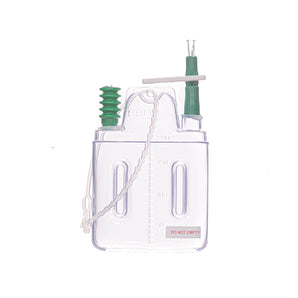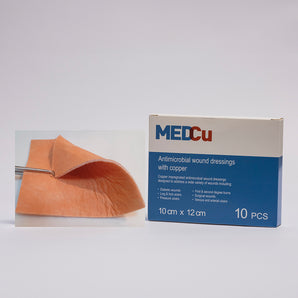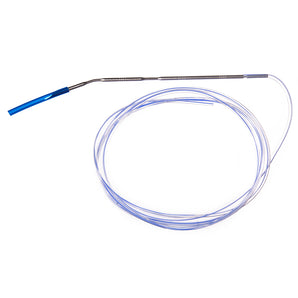Proper wound care is fundamental to promoting healing and preventing infections. Whether it's a minor cut or a more complex surgical wound, taking the right steps at home can significantly impact recovery. Regular cleaning, applying the correct dressing, and monitoring for signs of infection are key practices we should all follow.
In South Africa, where access to healthcare can sometimes be limited, understanding how to manage wounds effectively at home becomes even more crucial. By integrating high-quality wound care products and adhering to recommended guidelines, we can ensure better outcomes and a smoother healing journey. Let's explore the essentials of proper wound care and how we can take charge of our health.
Key Takeaways
- Regular Cleaning: Keeping the wound clean by using clean water or saline solution helps remove debris and bacteria, reducing infection risks.
- Appropriate Dressings: Selecting the right dressing, such as antimicrobial, hydrocolloid, or foam dressings, is crucial for protecting the wound and promoting healing.
- Frequent Monitoring: Regularly change dressings and monitor the wound for signs of infection like redness, swelling, and pus discharge, seeking medical advice if needed.
- High-Quality Wound Care Products: Using advanced wound care products from reputable sources ensures better outcomes and supports effective healing.
- Education and Guidelines: Adhering to recommended wound care guidelines and educating oneself on the type of wound and best treatment practices are essential for optimal recovery.
- Medical Attention: Seek professional medical help for persistent bleeding, signs of infection, deep wounds, embedded foreign objects, or if healing is impaired.

What Is Proper Wound Care
Proper wound care is essential for promoting healing, preventing infections, and improving overall health outcomes. The process involves several critical steps that need to be followed meticulously for effective results. It's not just about having the right products; it's about knowing how to use them correctly.
Cleaning the Wound
Effective wound care starts with cleaning. Ensure the wound is free from debris and bacteria. Use clean water or a saline solution for rinsing. Gently pat the area dry with a sterile gauze pad. This step minimises the risk of infection and prepares the wound for dressing.
Applying the Appropriate Dressing
Selecting the right dressing is crucial for proper wound care. High-quality wound care products, like those from Dynamed Pharmaceuticals, offer a range of options tailored to different types of wounds. For instance, antimicrobial dressings are ideal for reducing the risk of infection, while hydrocolloid dressings keep the wound moist and enhance healing.
- Antimicrobial Dressings: These dressings, often containing silver, help in reducing bacteria and infection risk.
- Hydrocolloid Dressings: Best for maintaining a moist environment, which speeds up the healing process.
- Foam Dressings: Ideal for absorbing excess exudate while keeping the wound moist.
Changing the Dressing
Regularly changing the dressing is vital for optimal wound care. Follow the healthcare provider's recommendations on how often to change it. Typically, dressings should be changed daily or when they become wet or dirty. Carefully remove the old dressing, clean the wound again if necessary, and apply a new, sterile dressing.
Monitoring for Signs of Infection
Keep an eye on the wound for any signs of infection. Symptoms include increased redness, swelling, warmth around the wound, and discharge of pus. If any of these signs appear, seek medical advice promptly as infections can complicate the healing process.
Using High-Quality Wound Care Products
Investing in high-quality wound care products ensures better outcomes. Advanced wound care solutions from Dynamed Pharmaceuticals are designed to provide optimal healing environments. These products not only protect the wound but also enhance tissue repair and minimize the risk of complications.
Step-by-Step Wound Care Guide
- Wash hands thoroughly: Use soap and water to prevent introducing bacteria to the wound.
- Clean the wound: Rinse with clean water or saline solution.
- Dry the wound: Pat gently with sterile gauze.
- Apply the dressing: Choose the appropriate dressing and place it on the wound.
- Secure the dressing: Use medical tape to keep the dressing in place.
- Change the dressing: Follow recommended guidelines for how often to change the dressing.
- Monitor the wound: Watch for signs of infection and report to a healthcare professional if needed.
- Always use sterile supplies.
- Keep the wound dry and clean.
- Avoid tight or restrictive clothing over the wound area.
- Follow the healthcare provider’s advice and recommendations.
- Educate yourself on the specific type of wound and best treatment practices.
By adhering to these steps and tips, proper wound care can significantly enhance healing and recovery. Using advanced wound care products from Dynamed Pharmaceuticals further supports these efforts, ensuring a smoother, more efficient healing process.

Types Of Wounds
Identifying the type of wound is crucial for selecting suitable wound care treatments and products, like those offered by Dynamed. Here's a breakdown of the main categories of wounds.
Acute Wounds
Acute wounds include injuries like cuts, abrasions and burns. These wounds typically heal within a predictable time frame without complications. For instance, cuts and abrasions generally result from external trauma and are common minor injuries. Burns, however, require specialised treatment, such as silver wound care dressings, which combat infection and promote healing. It's essential to clean acute wounds thoroughly and use appropriate dressings to prevent infection and ensure optimal healing.
Chronic Wounds
Chronic wounds are those that do not follow the normal healing process and may persist for weeks or even months. These wounds include pressure ulcers, diabetic ulcers and vascular ulcers. Chronic wounds often affect individuals with underlying health conditions that impair healing. For example, diabetic ulcers require close monitoring and advanced wound care products to prevent complications. Pressure ulcers, caused by prolonged pressure on the skin, demand specialised dressings and regular position changes. Vascular ulcers, resulting from poor blood circulation, benefit from dressings engineered to maintain a moist wound environment and improve circulation.
By recognising the type of wound, we can make informed decisions about our wound care approach, ensuring better healing outcomes.
Steps For Proper Wound Care
Proper wound care is essential for promoting healing and preventing infections. To ensure optimal recovery, follow these steps:
Cleaning The Wound
Cleaning the wound is vital as it helps remove debris and reduces infection risk. Begin by washing your hands thoroughly. Then, rinse the wound under running water for a few minutes. Avoid using hydrogen peroxide or iodine unless a healthcare professional recommends it, as these can damage the tissue. A mild soap solution works best for cleansing the surrounding skin, not the wound itself.
Applying A Dressing
Once the wound is clean, it's important to apply a suitable dressing to protect it and promote healing. Choose a dressing based on the wound type and exudate level. For instance, our transparent adhesive dressings provide a secure, waterproof barrier, ideal for minor cuts and abrasions. For more serious wounds, like burns, using silver-infused foam dressings supports healing by offering antimicrobial protection.
Monitoring The Healing Process
Consistently monitoring the wound is crucial. Look out for signs of infection, such as increased redness, swelling, or discharge. If you spot any of these, seek medical advice promptly. Change the dressing as recommended, usually when it becomes wet or soiled, to maintain a hygienic environment conducive to healing. Using high-quality wound care products from Dynamed can significantly enhance the healing journey.

Common Mistakes In Wound Care
Proper wound care ensures effective healing, but common mistakes can hinder this process and lead to complications.
Using The Wrong Products
Selecting inappropriate wound care products can impede healing. Products not designed for the specific type of wound may cause adverse effects or delay recovery. For example, using a non-breathable dressing for a minor cut prevents sufficient airflow, which is necessary for the wound to heal correctly. High-quality products like those from Dynamed, tailored for various wound types, are crucial in promoting optimal healing. Advanced wound care requires products that match the wound's needs, whether it's for burn wounds or post-surgical care. Always choose the right products to avoid complications.
Ignoring Signs Of Infection
Ignoring signs of infection is a critical error in wound care. Infection indicators such as increased redness, swelling and pus should never be overlooked as they escalate quickly. If unchecked, infections can spread to surrounding tissues and cause severe health issues. Regular monitoring of wounds and seeking medical advice when signs of infection appear is imperative.
Using products from trusted suppliers like Dynamed Pharmaceuticals enhances wound care by incorporating materials specifically designed to prevent infections and promote healing. Always remain vigilant and responsive to any changes in the wound's condition.
Regularly consulting healthcare professionals can provide additional guidance and oversight, ensuring that the wound care process is both effective and safe. Combining quality products with diligent care helps facilitate faster and more efficient healing.
When To Seek Medical Help
Certain situations necessitate medical attention. Addressing wounds appropriately ensures proper healing and prevents complications.
Persistent Bleeding
Seek medical help if bleeding remains uncontrollable, even after applying pressure for several minutes. This could indicate a damaged blood vessel. Immediate care ensures no further damage.
Signs Of Infection
Symptoms such as increasing redness, swelling, or warmth around the wound might indicate an infection. These signs, combined with fever or foul-smelling drainage, warrant professional evaluation.
Deep Wounds Or Burns
Deep wounds exposing muscle, bone, or fat layers require prompt medical intervention. Similarly, burns covering large areas or located on the face, hands, feet, or genitalia need professional care.
Foreign Objects
If a wound contains embedded objects like glass or metal, don't attempt removal yourself. Medical professionals ensure safe extraction and prevent additional injury or infection.
Animal Or Human Bites
Animal or human bites risk severe infection and should be seen by a doctor. Bites may need specialised care like antibiotics or even a tetanus shot.
Impaired Healing
Wounds that show no signs of healing within a few days or those that worsen require medical attention. Chronic wounds could suggest underlying conditions needing treatment.
Compromised Immune System
Individuals with compromised immune systems, due to conditions like diabetes, HIV, or chemotherapy, should seek medical advice for wounds. Their capacity to fight infection might be reduced, necessitating professional evaluation.
Dressing Concerns
Problems with wound dressings, such as persistent odour, excessive discharge, or allergies, require medical consultation. Dynamed offers advanced wound care products catering to various needs, ensuring effective and comfortable healing.
Pain Management
Should pain persist or increase significantly, consult a healthcare provider. Pain is a crucial indicator of complications requiring professional assessment.
Using quality wound care products from Dynamed Pharmaceuticals enhances healing and reduces complications. Ensuring professional medical evaluation when necessary is crucial for effective and safe wound management.

Tips For Preventing Wound Infections
Proper wound care is crucial for preventing infections that can hinder healing. We’ll explore proven methods to keep wounds clean and infection-free, drawing on our expertise in advanced wound care and wound care products.
Clean Hands and Tools
Always wash hands with soap and water before handling a wound. Use sterile gloves if possible. Clean tools with disinfectants to eliminate germs before use.
Regular Cleaning
Regularly clean the wound with clean water to remove debris and bacteria. Use gentle soap if needed, but avoid harsh chemicals that can irritate the skin.
Appropriate Dressings
Choose antimicrobial dressings, such as those containing silver, for added protection against infections. These dressings release ions that kill bacteria, restricting the growth of harmful microorganisms. Change dressings as recommended to maintain a clean environment.
Monitor for Signs of Infection
Watch for redness, swelling, increased pain, or discharge—signs of infection. Seek immediate medical advice if these symptoms occur to prevent complications.
Avoid Contaminants
Keep the wound covered to shield it from dirt and bacteria. Avoid swimming in lakes or pools, as public waters can harbour harmful pathogens.
Nutrition and Hydration
Consuming a balanced diet rich in vitamins and minerals supports the body’s healing process. Drink plenty of water to stay hydrated.
Consult Healthcare Professionals
Don’t hesitate to consult medical experts for serious wounds or if you're unsure about proper care. They can provide tailored advice and recommend suitable wound care products.
By following these tips, we can ensure wounds heal effectively, reducing infection risks and promoting quicker recovery. Let’s prioritise wound care to maintain overall health and well-being.
Conclusion
Proper wound care is essential for promoting quicker recovery and reducing infection risks. By following our guidelines, we can ensure effective wound healing and prioritise our overall health and well-being. Let's remember the importance of clean hands and tools, regular wound cleaning, and the use of appropriate dressings. Monitoring for signs of infection and consulting healthcare professionals for serious wounds are also crucial steps. With the right approach and high-quality products from Dynamed Pharmaceuticals, we can achieve optimal wound care even in areas with limited healthcare access.
Frequently Asked Questions
Why is proper wound care important in areas with limited healthcare access?
Proper wound care is vital in areas with limited healthcare access to prevent infections, promote healing, and avoid complications that may require advanced medical intervention which might not be readily available.
What are the key steps in wound care?
Key steps in wound care include cleaning the wound, selecting appropriate dressings, monitoring for signs of infection, and using high-quality products to aid in proper healing.
How do I clean a wound properly?
To clean a wound properly, use clean water and mild soap. Avoid using harsh chemicals that can irritate the wound. Pat dry with a clean towel before applying a suitable dressing.
What type of dressing should I use?
Choose dressings appropriate for the wound type. Dressings with antimicrobial properties can be beneficial in preventing infections. Always ensure the dressing is sterile and changed regularly.
How can I prevent wound infections?
Prevent wound infections by washing hands and tools thoroughly before touching the wound, cleaning the wound regularly, using proper dressings, and avoiding contaminants. Maintaining good nutrition and hydration also aids in healing.
What signs of infection should I look for?
Common signs of infection include increased redness, swelling, warmth around the wound, pus or discharge, pain, and fever. If these symptoms appear, consult a healthcare professional promptly.
Why is good nutrition and hydration important for wound healing?
Good nutrition and hydration are essential as they provide the body with necessary nutrients and fluids to support the healing process and bolster the immune system, reducing the risk of infection.
When should I consult a healthcare professional about a wound?
Consult a healthcare professional if the wound is deep, doesn't show signs of healing, or if you notice signs of infection. Professional advice is crucial for complicated or serious wounds to ensure proper treatment.
Are there any common mistakes in wound care I should avoid?
Avoid common mistakes such as not cleaning the wound properly, using inappropriate dressings, ignoring signs of infection, and not maintaining good hygiene during dressing changes.
How can Dynamed Pharmaceuticals aid in wound care?
Dynamed Pharmaceuticals offers high-quality wound care products tailored for different wound types, helping to ensure effective healing and reduce the risk of complications like infections.






